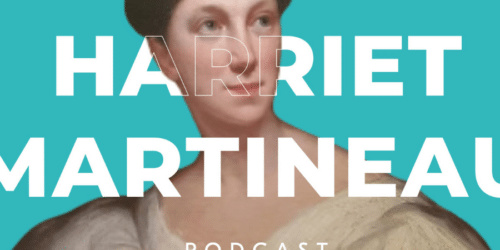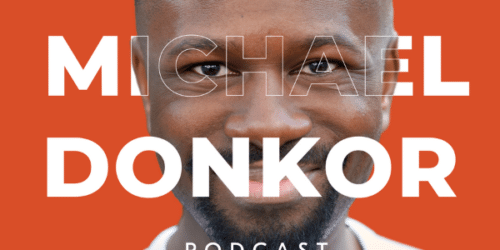
Do you love creative writing? Are you passionate about saving the planet?
Discover the unique genre of ‘climate writing’ and learn how to include positive climate solutions in any genre of writing with these handy tips from our Imagining the City virtual writer in residence, Lynn Buckle. From avoiding fake news and checking your facts to joining a local climate writing group, Lynn’s ‘how to’ guide will set you on the path to improve your writing and make the world a bit greener in the process.
Imagining the City brings together five writers from UNESCO Cities of Literature across the world to explore connections between Norwich and their cities; link up with local writers; and work on a range of commissions.
1. Know what this means.
What are Positive Climate Solutions? They encompass all the things we can do to avert climate disaster, from large political policies to making small personal changes in the way we live. Any positive climate solution can be included in any type of writing. It can be incorporated in tiny ways into any genre. Whether you write literary fiction, historical romance, thrillers, crime, speculative, sci-fi, commercial, memoir, essay, or poetry, you can insert at least one positive solution to averting climate crisis in your prose. For example, you might describe a poetic character’s clothes as up-cycled, use a wildflower garden as a domestic drama setting, or site a crime in a recycling centre. Or you could go bigger, swapping the entire premise of your suspense from apocalypse survival to apocalypse prevention.
2. Check your facts
As with all writing, double-check your information before including climate solutions. Remember, you do not need a science background in ecology, conservation, or climate activism to gather your facts. Writers carry out research all the time, and this is no different. And don’t forget to double-check your pre-existing knowledge against verified facts.
3. Large themes, worn lightly
Be careful not to lecture your points, the old rule of ‘show don’t tell’ still applies. Even in non-fiction, avoid exposition. Normalise your message by including small subtle climate solutions when writing fiction, as a backdrop to your existing themes and plots, and you will reach a wider audience.
4. Find examples of positive climate solutions in fiction and poetry
Try and find other books which include positive climate solutions, in any genre. There are very few examples in fiction or poetry, so be the person who writes them! It is easy to find fictional stories about apocalyptic survival and climate disaster, but these only serve as warnings and do not offer solutions to averting climate scenarios. There is also a long tradition of eco poetry and prose, but just eulogising nature does not offer solutions to its decline. Likewise, nature writing is often used as a device in memoir as a salve or a vehicle for personal change. This can be adapted by putting the environment first rather than ourselves, or at least by raising questions about why we do this and by offering some climate solutions.
5. Join a Climate Writers’ Group
It helps to meet with other writers trying to achieve the same goals as yourself. All writers need feedback and support from their peers, so joining or forming your own group is a great start. There are climate writer groups worldwide, sharing knowledge and ideas, writing in all genres. Follow some on social media to get more reading and writing tips. Lynn Buckle is founding member of Ireland’s first Climate Writers’ Group at the Irish Writers’ Centre and author of What Willow Says, a literary novel incorporating positive climate solutions.
Lynn Buckle, Dublin UNESCO City of Literature
Lynn Buckle is an Irish author and artist. Lynn’s literary novel, The Groundsmen, was published in 2018 by époque press. Nominated for the Republic of Consciousness Prize, it was listed as Easons Best of Irish Literature and featured in a year-long book tour of Ireland and the UK. Recent work examines gender, power, and place through the lens of fictional nature and climate writing, from her own disability perspective. Her short stories and protest poetry can be found in Infinite Possibilities, Brigid, Luisne an Chleite, époque ezine, and HCE Review Vol I, Issue II.
Lynn, a protest author who writes from a disability perspective, says she is honoured and excited at the opportunity to work with authors from other literary cultures, while promoting Irish authors abroad, creating connections, and sharing writers’ worlds. She plans to foster interest in nature and climate writing, while writing about Norwich and Dublin’s shared histories of hidden waterways through the lens of gender, power, and place.
Looking for some inspiration?
Join us on Instagram @WritersCentre this February for Imagining the City: a series of daily writing prompts inspired by the hometowns of our UNESCO Cities of Literature Virtual Writers in Residence. From bookshops to beaches, our writers have devised a series of images and written prompts that reflect the concerns they’re exploring throughout their virtual residency. Get your writing prompts >>
You may also like...
Reintroducing Harriet Martineau with Stuart Hobday & Gaby Weiner
In this episode of The Writing Life, Stuart Hobday and Gaby Weiner discuss their new book ‘Reintroducing Harriet Martineau: Pioneering Sociologist and Activist’, and the the life and legacy of Harriet Martineau.

22nd April 2024
How to improve your poetry: top tips for aspiring poets
Embarking on a new poem can feel like an intimidating task for any poet. In this article, we share our top tips and a creative writing exercise that will help you have fun with your poetry.

18th April 2024
Crafting identity in fiction with Michael Donkor
In this episode of The Writing Life podcast, we speak with novelist Michael Donkor about how to craft identity when writing fiction.

8th April 2024








